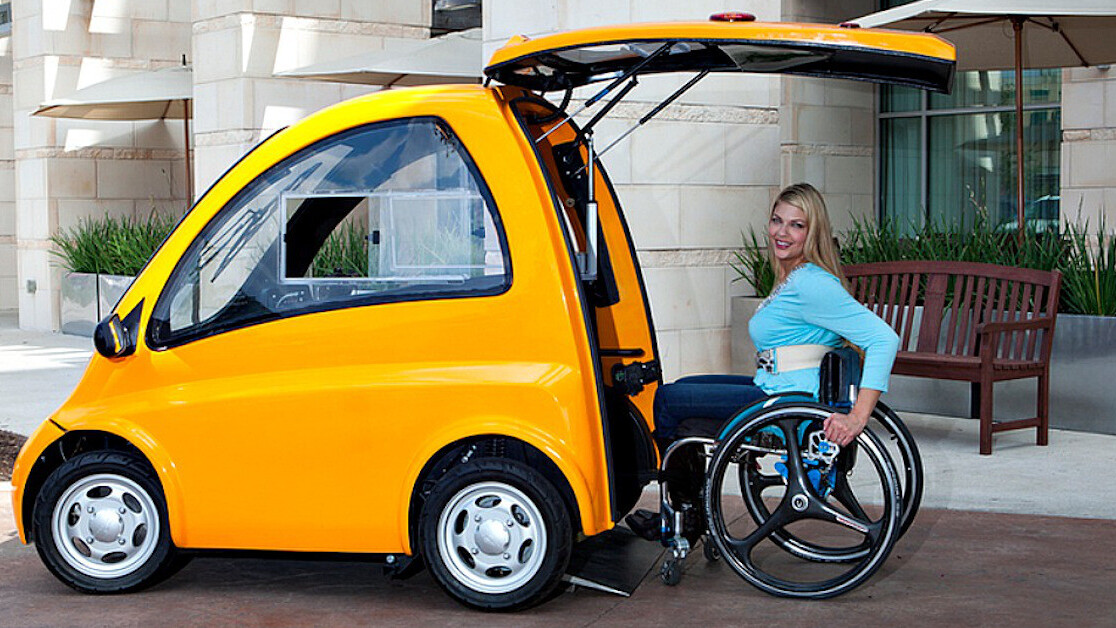
This article was originally published by Martin Banks on Clean Fleet Report, a publication that gives its readers the information they need to move to cars and trucks with best fuel economy, including electric cars, fuel cells, plug-in hybrids, hybrids and advanced diesel and gasoline engines.
The electric vehicle market has seen incredible growth in the past decade. There were 7.2 million EVs on the road in 2019, despite there being less than 20,000 in use just nine years earlier. New models emerge all the time – and the Kenguru is easily one of the most intriguing.
In an innovative and competitive market, the Kenguru manages to stand apart from other EVs. It’s not the fastest electric car, nor does it have the longest range, but it does have one notable claim to fame. It’s the world’s first EV made specifically for wheelchair users.

What sets the Kenguru apart?
The Kenguru has just one door, which takes up the entire back panel of the vehicle. At the click of a button, the rear panel lifts, and a ramp automatically extends. When drivers turn on the ignition, the ramp retracts, and the door closes.
Kenguru EV for wheelchairs
Instead of a traditional steering wheel and pedals, the Kenguru has handlebars, similar to a motorcycle. These controls have buttons that let drivers accelerate and brake without using their feet. There’s also a wheelchair-locking mechanism that won’t let the car turn on until the driver’s wheelchair is securely in place.
Wheelchair-accessible vehicles have been around for a while, but can cost between $40,000 and $100,000, making them too expensive for many people. By contrast, the Kenguru costs just $25,000, and users can get it even cheaper. As a fully electric vehicle, it’s eligible for federal and state tax credits.

The Kenguru is also so small and lightweight that it classifies as an electric scooter. That means you don’t need a driver’s license to operate it, making it even more accessible.
How does the Kenguru stack up against other EVs?
Compared to other EVs, the Kenguru isn’t particularly fast or feature-rich. It has a top speed of 28 mph and a range of 43 to 68 miles. There’s also no room for any passengers and limited storage space.
Kenguru EV for wheelchair
While the Kenguru may not be comparable to an ordinary car, it does precisely what it’s supposed to. It gives people who use wheelchairs an affordable, accessible way to move around the city. Transportation can be a considerable barrier for wheelchair users, but the Kenguru provides an answer.

The Kenguru also fully charges from an empty battery in just eight hours. Since it can charge so quickly, its limited range is less of a concern. The Kenguru has other EVs beat in another category, too. A new electric car costs $55,600 on average, while the Kenguru is less than half of that price.
The EV market is becoming more diverse
A vehicle like the Kenguru is a positive sign for the EV market. Electric car manufacturers are making products with a more diverse audience in mind. There’s a suitable EV out there for virtually everyone.

As more of these more niche market EVs appear, electric cars as a whole will be more appealing. They’ll continue to grow, and emissions will fall as a result. The Kenguru may be a tiny car, but it represents a big step forward.
Get the TNW newsletter
Get the most important tech news in your inbox each week.





